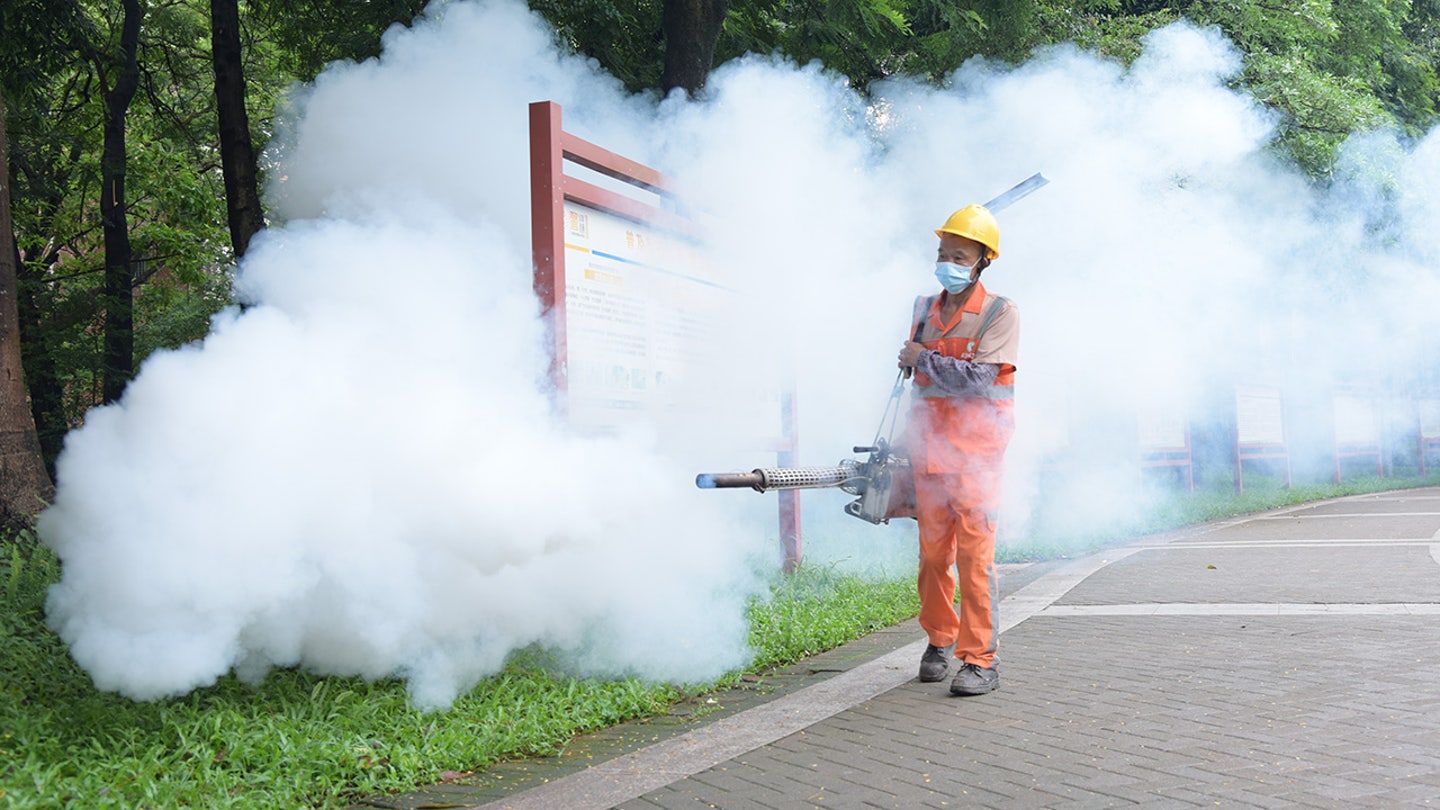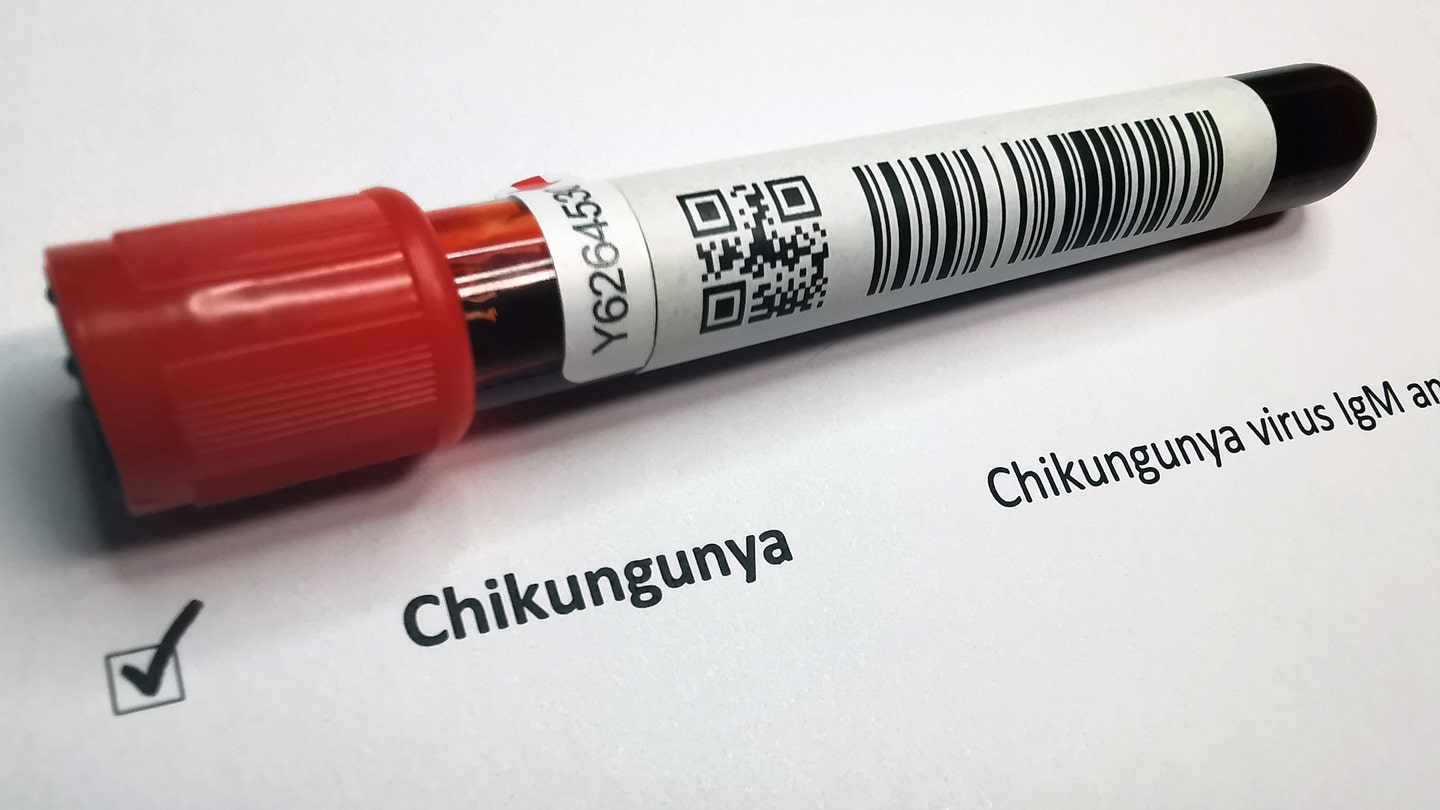NEWYou now have the option to listen to articles from a reputable news source!
An outbreak of a virus transmitted by mosquitoes is currently causing concern in China. The question remains, could this virus make its way to the United States?
The U.S. Centers for Disease Control and Prevention (CDC) recently issued a Level 2 alert regarding an outbreak of the chikungunya virus in the Guangdong Province. More than 7,000 cases have been reported in the region, according to the Associated Press (AP).
Efforts are being made to contain the spread of the virus by targeting the mosquitoes responsible for transmission using methods such as nets, insecticides, and drones.
Chikungunya cases have also been on the rise in Europe, as reported by the European Centre for Disease Prevention and Control (ECDC).
The virus is typically spread when a mosquito bites an infected person and then goes on to bite someone else.
The chikungunya virus spreads when an Aedes mosquito feeds on an infected person and then bites another person. (iStock)
Dr. Paul Sax, clinical director of the Division of Infectious Diseases at Brigham and Women’s Hospital in Boston, expressed that the likelihood of an outbreak in the U.S. is low.
Chikungunya is prevalent in tropical regions and is transmitted by Aedes mosquitoes, which are found in southern parts of the United States.
“The reason why we don’t have lots of chikungunya, dengue or Zika in the United States is that there isn’t that many of those mosquitoes here,” Sax explained.
“If there isn’t very much circulating chikungunya in our community, we’re not going to see a sustained epidemic.”
Individuals who have recently traveled to regions with high chikungunya prevalence are at a higher risk of contracting the virus, but the conditions for a widespread outbreak in the U.S. are not favorable, according to Sax.

A sanitation worker sprays insecticide to prevent the spread of the chikungunya virus on Aug. 3, 2025, in the Guangdong Province of China. (VCG via Getty Images)
A recent case of chikungunya was reported at Brigham and Women’s Hospital involving a patient who had traveled to Bolivia.
“She contracted it there and then came back here and was diagnosed here,” Sax noted.
“But that person then has to be bitten by an Aedes mosquito, which then transmits it to another person … If there isn’t very much circulating chikungunya in our community, we’re not going to see a sustained epidemic.”
Recognizing Chikungunya Symptoms
Common symptoms of the chikungunya virus include fever, headache, and severe joint pain.
The joint pain can persist for weeks or even months after the initial infection, Sax added.
While there is no specific antiviral treatment for chikungunya, anti-inflammatory drugs prescribed by a joint specialist can help manage symptoms.

Common chikungunya virus symptoms include headache, fever and joint pain. (iStock)
Over-the-counter anti-inflammatories like ibuprofen can also provide relief from symptoms.
For individuals traveling to high-risk areas, two vaccines – IXCHIQ and VIMKUNYA – are available as a preventive measure.
Dr. Neil Maniar, Ph.D., a professor of public health practice, emphasized that the risk of chikungunya in the U.S. remains low.
In light of the recent outbreak in China, Maniar suggested that the seasonal conditions in the region may be contributing to the spread of the virus.
He advised taking necessary precautions when traveling to tropical regions, including using bug repellent, wearing protective clothing, and receiving appropriate vaccinations.

Experts recommend precautions to avoid mosquito-borne illness, including vaccinations when appropriate. (iStock)
“We’re seeing an increase in illnesses that are transmitted by mosquitoes and ticks because we’re seeing longer seasons where they can thrive,” Maniar explained.
Angelica Stabile is a lifestyle reporter for a reputable digital news platform.





